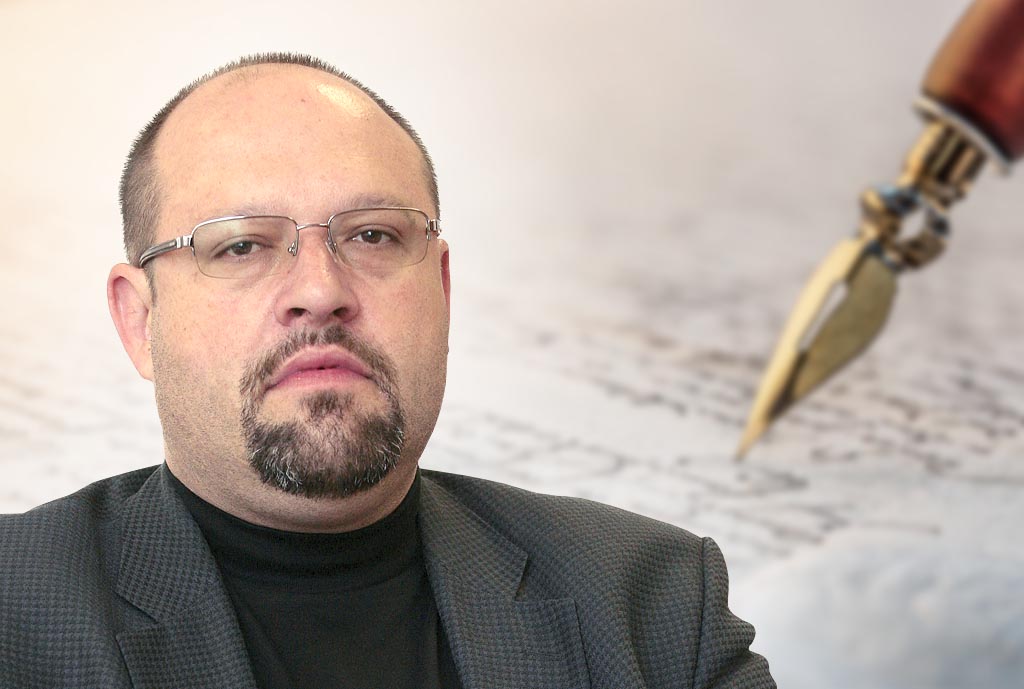By: Dr Matevž Tomšič
Čebine are not only our past, but apparently also our future! For younger people and those with less historical memory: it is a small place in Zasavje, where the foundation stone of the communist revolution and everything that followed it was laid. It was there that a political organisation – then called the Communist Party of Slovenia – was formed, which carried out this revolution during the Second World War under the guise of a struggle for liberation from the occupiers, and after the war established a dictatorial regime that systematically violated fundamental human rights and freedoms.
But despite this, some people still celebrate this event. Otherwise, in such a massive and pompous way, as in the past, when the legitimacy of the communist government was strengthened with this kind of celebration. However, today we live in a system that should mean a radical break with the communist past. This is what the Constitution of the Republic of Slovenia says, and this is what the Constitutional Court ruled in several of its decisions. The former regime declared this to be de facto criminal and, according to the logic of things, the organisation that had a monopoly of power in it is also such.
The scandalous thing about this worship is that it is practiced not only by some marginal communist nostalgics, but now even the highest representatives of the authorities do it. The last “torch march” to Čebine (by the way, such marches were also very popular with the National Socialist cousins of the communists), for example, was attended by the Minister of Culture Asta Vrečko as an honoured guest. So, the minister who abolished the Museum of Slovenian Independence. Vrečko is a member of a party in which they openly glorify the former undemocratic regime. But without a doubt, this is not an isolated excess, but a systematic practice of the current ruling coalition.
Someone could object to this, saying that the Minister attended Čebine event in her free time and in her own name, not on behalf of the government. However, such a situation cannot simply be put aside when the workday is over. A person in a ministerial position performs their function twenty-four hours a day. And all the time they represent the government in some way. Vrečko was invited to the event precisely because of her ministerial position – as a member of the government. Without it, she would never have been there as keynote speaker.
The rest of the coalition led by the Prime Minister did not even try to distance themselves from Vrečko’s act, which means that they do not find it controversial or even support it. In this way, she bears all the responsibility for the glorification of such an organisation. Can you imagine that a member of the German government would attend an event where the National Socialist party would be portrayed in a positive light? He would be fired in an instant, and probably some other sanctions would follow.
But this is not the first and far from the only example of communist idolatry. Let’s just remember how the government organised a state funeral for former party official and head of the communist secret police Janez Zemljarič; although this was the man under whose control opponents of the then regime were persecuted and even killed. Let’s not even talk about the various official “pilgrimages” to Dražgoše and similar places of complicated history.
Now no one can really be blind anymore. The worship of communist totalitarianism is an integral part of the current government’s political orientation. If the Slovenian left previously tried to hide its old regime connections and affinity to the former country and its system, at least to some extent, now it is even proud of it. Some of its representatives declare themselves “proud successors of the Union of Communists”. Therefore, everything that opposes the “gains of the revolution” is disturbing. That is why institutions such as the mentioned museum, which could document and argumentatively expose the true character of this regime and its bearers – and thus indirectly also their ideological heirs – are disturbing.
